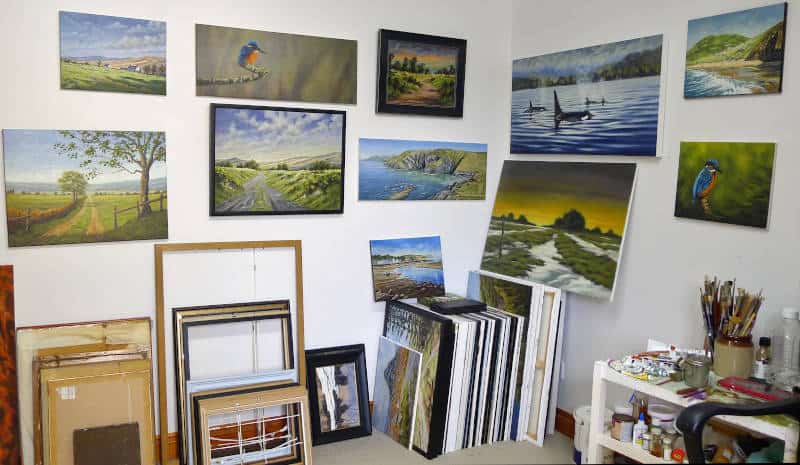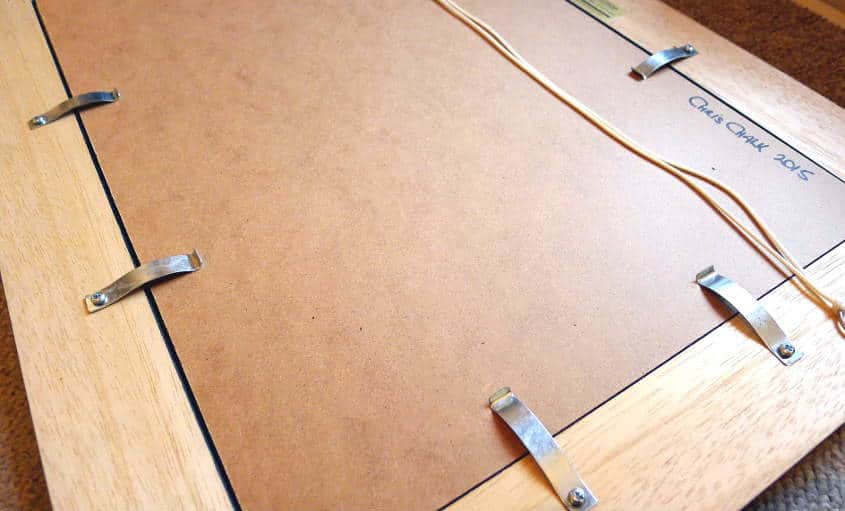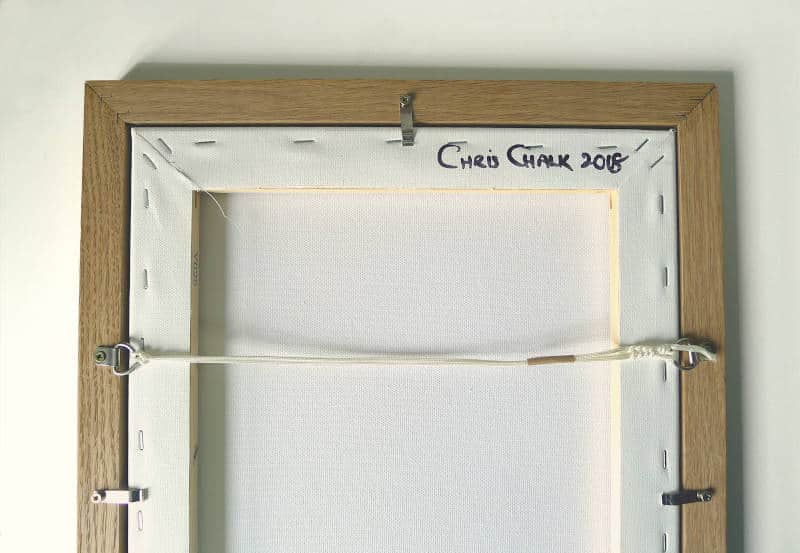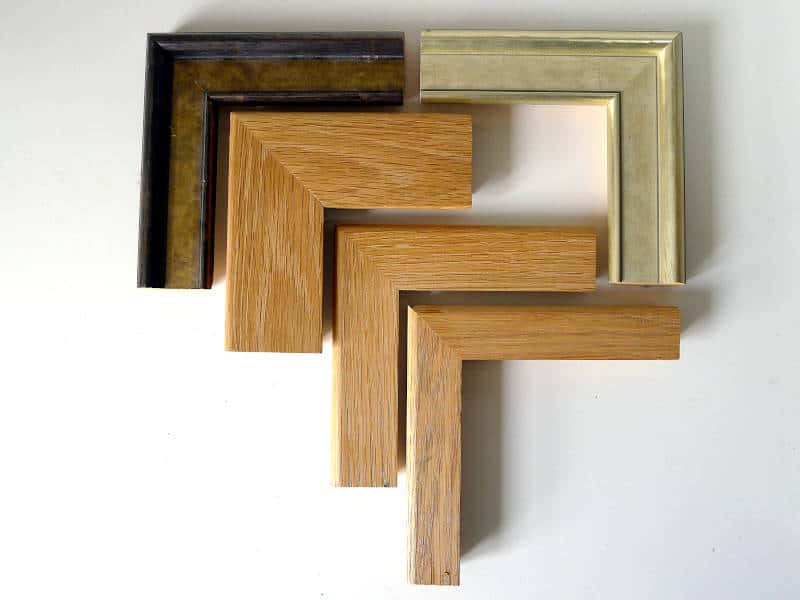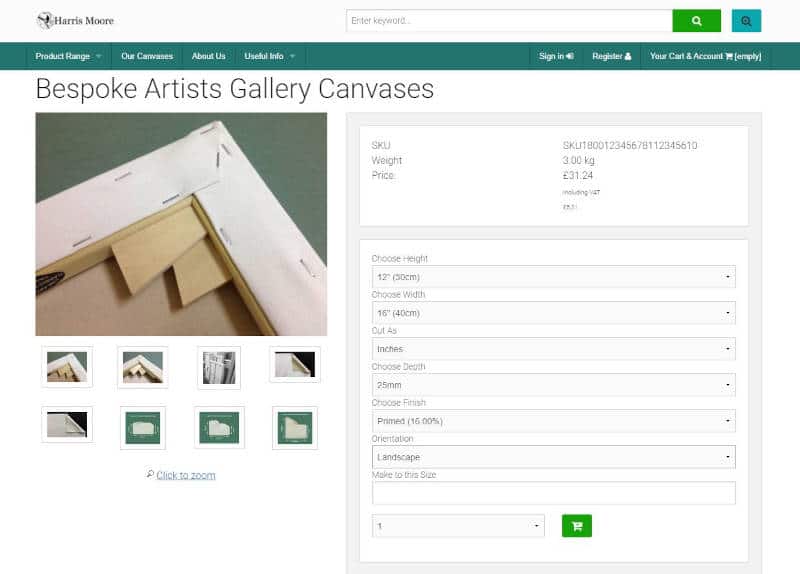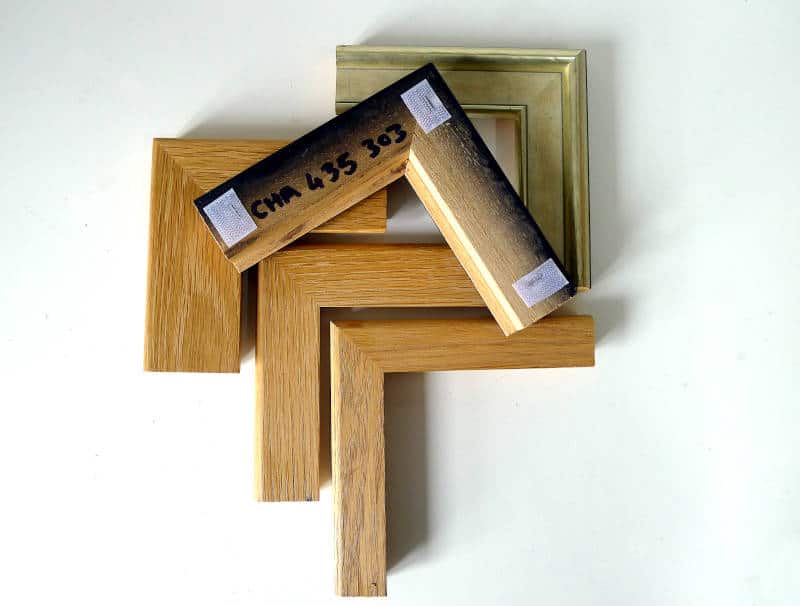One of the biggest costs when exhibiting your artwork is the cost of the framing. High quality professionally made frames, which are exactly what you want, don’t come cheap. There are however some simple things you can do to keep those costs down and make the most out of your money.
Tip 1) Paint on standard size canvases – Unless you’re painting a commission and a specific size has been requested, try to always paint on standard size canvases, or canvas sizes that you use a lot. For example, most of my work is painted on 36×24 inch, 30×12 inch, 24×18 inch, 16×12 inch or 14×10 inch canvases. Although framing these sizes to a professional standard still requires bespoke professionally made frames, using the same size canvases regularly means that I can then take those frames off paintings and use them on other paintings of the same size. This is a huge money saver.
Tip 2) Use Spring clips – For tip number 1 to work, when you get your paintings framed ask that they be fitted into the frames using spring-clips, and not pinned permanently. Spring-clips are just sprung metal pieces that have a hole at one end. These are simply screwed to the frame, the other end is then placed over the backboard or canvas, and the screw is tightened. This puts tension on the clip and holds the painting in the frame securely.
Tip 3) Neutral colour frames – When you chose your frame mouldings try to pick a neutral colour, or a colour that works well with more than just one of your paintings. Common colours that work well with many paintings are black, white, cream, and natural wood colour. I do of course have frames that were made for specific paintings and that are different colours to these, but I usually paint a picture that these frames work nicely on eventually.
Tip 4) Make your painting surface fit first – If you have a frame of a certain size you want to use, make sure you cut your painting surface to fit that frame before you paint the picture. This is possible if you paint on hardboard or MDF of course, less so if you paint on stretched canvas. It is however possible to have a stretched canvases made bespoke to a exact size, and this is usually cheaper than having to have a new frame made to fit a canvas.
Jacksons Art offer this service here – jacksonsart.com
Also Harris Moore Canvases – harrismoorecanvases.co.uk
Tip 5) Get some samples – Ask your framer if you can have some corner frame samples to take home, that way you can try some of your most used frames types and colours on new paintings. Corner pieces work best because you can balance them on the top corners of the painting as it’s hanging on the wall or sitting on your easel. If your canvas/board is accurately cut you can then simply ask your framer to make you up the frames to the size your require, without having to take a trip to see your framer with the painting in tow.
Tip 6) Look after your frames – Frames damage very easily, sometimes the tiniest knock can chip the coating or dent delicate woods, so look after them. I store frames that are not in use in a lot of bubble-wrap, under my packing table out of harms way. Most frame damage occurs when you transport your painting, so always put plenty of bubble-wrap on framed paintings until you get them to their destination. Once on the wall paintings are usually out of harms way, but sometimes artworks in galleries or on display do get damaged, this is usually slight damage and I afraid has to be accepted.
I hope you find this advice helpful, and happy painting.
Chris
